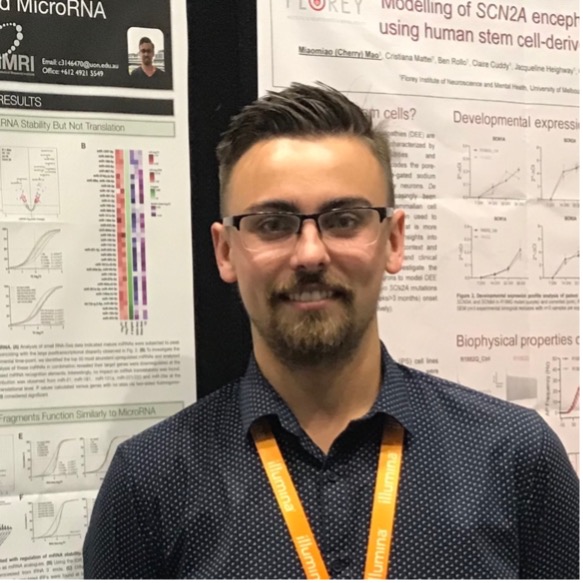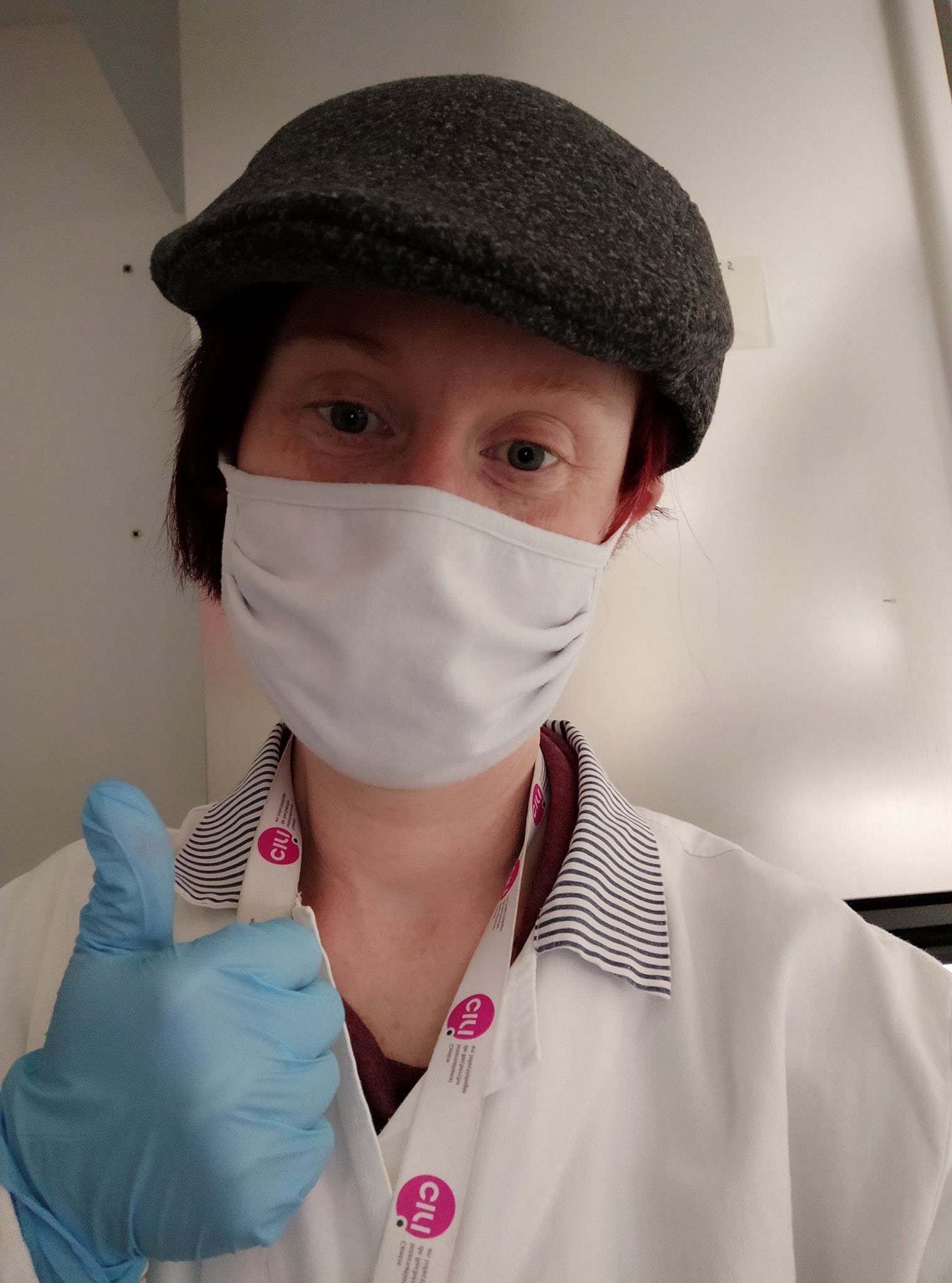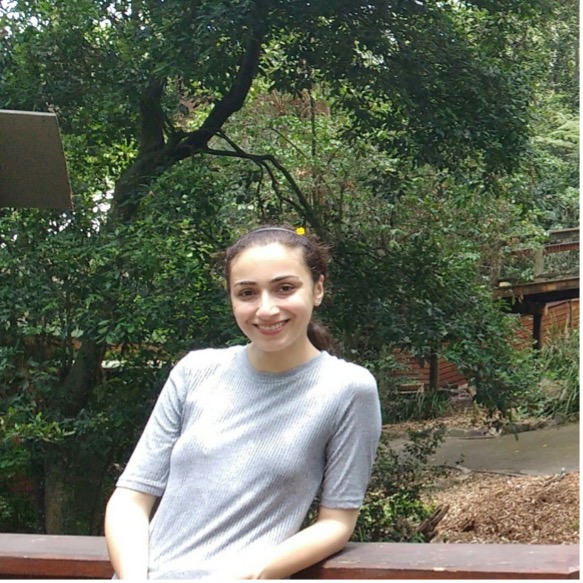
People
Professor Murray Cairns
Team Leader
Murray received his PhD in Biochemistry and Molecular Genetics from the University of New South Wales, Sydney Australia. He then worked as an industry postdoctoral scientist at Johnson and Johnson Research and Nucleics in Sydney before moving to Newcastle University to take an academic research position supported by the Schizophrenia Research institute. Since 2017 Murray has been supported by an NHMRC Senior Research fellowship focused on the application of systems biology in complex psychiatric disorders, both to improve our understanding of the pathogenesis of these conditions and identify novel opportunities for treatment. This research is using both population-based cohort studies and individualized analysis of both genomic and transcriptomic variation to identify opportunities for drug repositioning and precision intervention. Murray also has a long-standing interest in functional genomics and the application of model systems to determine the biological significance of disease-associated genomic variation.
Dylan Kiltschewskij
Post-Doctoral Researcher
PhD
Dylan Kiltschewskij is a postdoctoral research fellow in the Cairns group. Dylan’s research aims to explore and characterise the nexus between fundamental neuroscience, genetics and psychiatric disorders through implementation of multidimensional high-throughput molecular techniques, systems biology and statistical genetics. His present work is focused on leveraging large genome-wide association studies (GWAS) to infer the effect of biochemical exposures on brain structure to identify putative relationships relevant to psychiatric disorders and explore potential drug repurposing opportunities. Dylan is also currently utilizing DNA methylation signals in conjunction with genetic data to refine the identification of individuals with a high burden of genetic and epigenetic risk for schizophrenia, as well as severe cognitive subtypes. Since joining the Cairns lab as an Honours student, Dylan has additionally conducted and published studies exploring the mechanistic basis of microRNA and other noncoding RNAs in neuronal cells by employing a range of RNA sequencing methods, including mRNA-Seq, small RNA-Seq, Ribosome Profiling and Poly(A)-tail sequencing. Collectively, these studies have enabled Dylan to develop expertise in a range of experimental, bioinformatic and statistical techniques, as well as a passion for scientific communication via conferences and social media.
Chantel Fitzsimmons
Post-Doctoral Researcher
PhD
Chantel received her PhD in medical genetics from the University of Newcastle, Australia. She then spent five years abroad working in France. She held a post-doctoral researcher position at the Centre International de Recherche en Infectiologie (CIRI) in the Molecular Basis of Viral Pathogenicity Team. Her research focus was the dysregulation of the immune response by Ebola Virus infection. She identified a novel pathway activated by a newly identified viral protein responsible for the excessive immune response observed during Ebola virus infection. This discovery may lead to the development of novel drugs targets that impede the immune response and improve survival rates. She was also a post-doctoral researcher at the Centre de Recherche en Cancérologie de Lyon, where her research focus was on a novel mechanism for activating the innate immune system and evaluating the effects on tumour growth/metastasis in mice/rats with haematological malignancies. This was an extremely successful project that resulted in progression to clinical trials on pigs and resulted in several patents and industry collaborations.
Chantel returned to the University of Newcastle in 2022 as a post-doctoral fellow under Conjoint Professor Murray Cairns as part of the Cairns group. Chantel’s research focus here is to improve our understanding of the pathogenesis of complex neuropsychiatric disorders. Chantel’s research utilises patient derived cerebral organoids and several molecular and phenotypic assays to test the utility of the pharmagenic enrichment strategy (PES) to identify genetically informed treatments for precision medicine in schizophrenia. The outcomes of the proposed research are highly likely to drive clinical translation that would dramatically alter the management of schizophrenia.
William Reay
Post-Doctoral Researcher
PhD
Dr William Reay is a post-doctoral researcher and statistical geneticist in the School of Biomedical Sciences and Pharmacy at the University of Newcastle and the Hunter Medical Research institute. Dr Reay is passionate about the prospects of genetics and genomics to better understand complex human disease and to accelerate treatment. His research is interdisciplinary and seeks to interpret large scale genomic data using the principles of systems biology and state-of-the art statistical approaches.
Dr Reay's research has three primary aims:
- To better understand the genetic factors that contribute to complex human diseases.
- To use genetics to uncover opportunities for drug development or drug repurposing.
- To develop precision medicine tools and companion diagnostics to better match patients to their optimal treatment.
Dr Reay has worked across a variety of different disorders and regularly collaborates with both clinicians and basic scientists to further the impact of his research. For example, he has worked on projects related to mental health, cardiovascular disease, cancer and respiratory disease. The track-record of Dr Reay is also evidenced by his extensive publication record and willingness to externally collaborate with industry. Specifically, he has published first author manuscripts in high profile journals including Nature Reviews Genetics, Nature Communications, Molecular Psychiatry, Science Advances, Neuropsychopharmacology, and eLife. Dr Reay has also actively engaged in external collaborations with other researchers and industry, and was selected for the industry mentoring network in STEM (IMINS) program in 2021 from the Australian Academy of Technology and Engineering.
Behnaz Khavari
Post-Doctoral Researcher
PhD
Behnaz joined the Cairns group in 2016 as a PhD student and is currently a Postdoctoral Research Fellow. She has been investigating the effects of environmental risk factors of psychiatric disorders on the expression of genes and miRNAs in neuronal cells, with a particular interest in oxidative stress. Behnaz has also been working on blood samples from schizophrenia patients with moderate to severe cognitive impairments, with the aim of identifying miRNAs related to cognitive function. In these studies, she has applied high performance computing and various bioinformatics tools to analyse big data generated by small and total RNA-sequencing.
Behnaz is also interested in the application of statistical genetics methodologies, in particular, mendelian randomisation, for predicting the potential causal effects of a variety of compounds for complex polygenic diseases.

Michelle Barnett
PhD Candidate
BBiomedSc - Hons Class I
Michelle is a PhD candidate in the Cairns laboratory with a project focussed on developing a blood-based, small RNA biomarker for schizophrenia. Michelle joined the Cairns lab during undergraduate study at the University of Newcastle after becoming fascinated by the role of miRNA in brain function. In particular, detecting alterations in brain associated miRNA through targeted capture of serum extracellular vesicles. This technique allows a minimally invasive analysis of the brain regulatory environment and can be applied to a wide range of neurological pathologies.
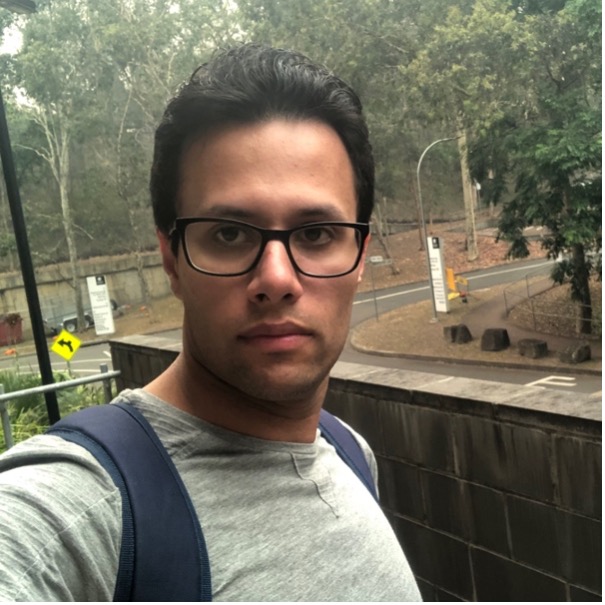
Shahin Masserrat
PhD Candidate
B.Sc., M.Sc.
Shahin is a Ph.D. candidate in the Cairns laboratory. Shahin completed his Bachelor of Microbiology in Iran and has been a member of the Cairns group since 2017. He is currently working on a project entitled Identifying causal variants and genes associated with schizophrenia. Shahin uses a range of bioinformatic approaches such as TWAS, COLOC, MAGMA and Sherlock to identify putative causal variants for schizophrenia. He is investigating the effect of candidate variants in cellular context by using CRISPR / Cas9 method.
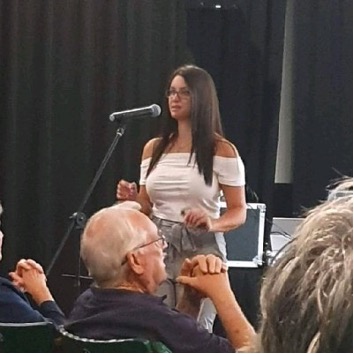
Laura Greco
PhD Candidate
BBiomed Sci - Hon
Laura is a PhD candidate with a research area that covers molecular neurobiology and bioinformatics. Laura completed her undergraduate degree in Biomedical Science with Honours at the University of Technology, Sydney and had a previous research focus on infectious diseases (food-borne) and biotechnology. Laura's thesis topic involves identifying the molecular determinants of comorbid addiction in schizophrenia. Laura has experience with various laboratory techniques from RT-qPCR, Animal experimentation (surgery, perfusions, self-administration training). Laura is also an avid science communicator, not only presenting work at national and international conferences but also working as a casual lecturer at the University of Newcastle and often engaging with the local community and schools about science and non-science related topics, from layman terms presentations to university pathways and career options.
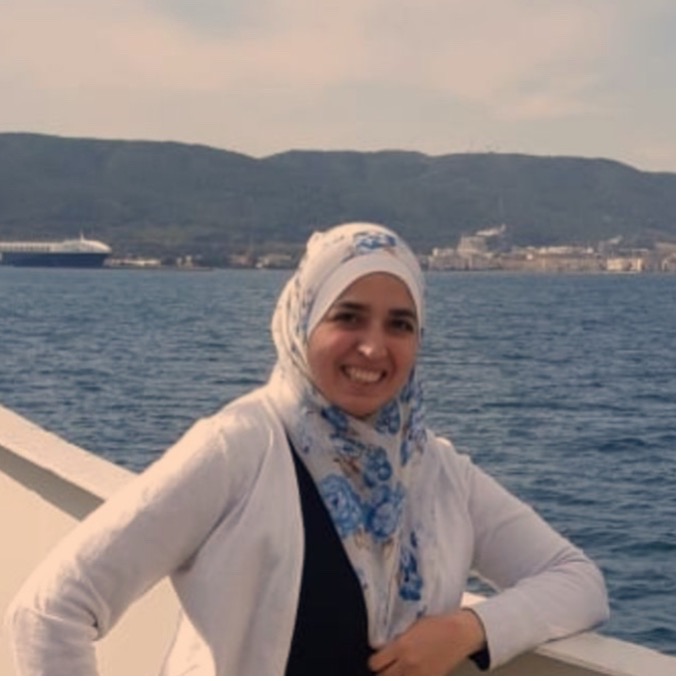
Sahar El Shair
PhD Candidate
Doctor of Pharmacy
Sahar is PhD candidate in the Cairns Laboratory group. Sahar graduated with a bachelor degree in Doctor of Pharmacy (Pharm D) in 2009 from Jordan. Then she got her master's degree in pharmacology in 2017 from Jordan (first on her class). Sahar worked as a Pharm D (Clinical Pharmacist) with different backgrounds and specialties in a couple of healthcare providing institutions in Jordan. Sahar was, also, involved in international, multi-centered clinical trials specialized in Oncology and other specialties of different phases (including phase II, III and IV). Sahar has a passion into personalized medicine and how pharmacogenomics might affect patient's responses to treatment. Her project will be connecting genetics and system biology for complex traits with the clinical utility of precision medicine.

Danielle Adams
PhD Candidate
B.Math, B.S. - Honours Class 1
Danielle is a PhD candidate in the Cairns Laboratory group. She graduated from the University of Newcastle with a Biomedical Science Honours (First Class) in 2020 as well as a Bachelor of Science (Distinction) and received the faculty medal for the Bachelor of Mathematics (Distinction) in 2019. Her research currently focuses on the identification of genetically predicted exposures in disease pathology and precision medicine for stratifying risk of heterogeneous disorders. Danielle has an interest in the application of computational and statistical methods for genetic analysis, specialising in methods such as polygenic risk scoring and mendelian randomisation.

Md Mamun-Or- Rashid (Mamun)
PhD Candidate
Bachelor of Pharmacy (Honours)
Mamun is a PhD candidate in the Cairns Laboratory group. He graduated with a Bachelor of Pharmacy (Honours) from Bangladesh. He worked on the effect of cardiovascular drugs on rat models during his honour's thesis. He subsequently worked as a scientist in the Research and Development Department of a Multinational Pharmaceutical Company. Mamun has interest in personalized medicine for common cancer and how pharmacogenomics might affect patients' responses to treatment. He is currently working on a project entitled ‘Using common variant genetics for precision medication and drug repurposing in common cancer’.

Padraic (Paddy) Kearney
Research Assistant
BSc/BArts - Honours Class 1
Paddy completed his Bachelor of Science majoring in Medical Immunology and Microbiology as well as a Bachelor of Arts, majoring in History and with a minor in philosophy at University of NSW. Throughout his undergrad he volunteered during university holidays at Minomic International Ltd, to gain further insight into how laboratories function. After finishing at UNSW, Paddy transferred to University of Sydney complete his Honours at Professor Rasko’s Gene and Stem Cell Therapy laboratory where he was awarded Class 1. At the completion of his Honours, he was hired as an RA, and stayed with the lab for 18 months before leaving to pursue his sporting dreams, which came to a halt in 2020. Paddy then joined A/Prof. Matt Dun at the University of Newcastle, working until early 2023 as part lab manager and part RA specialising in Cell Culture and biochemistry techniques. Since March 2023 Paddy has been working as an RA for Prof. Murray Cairns and will be assisting with the development of iPS cell culture technologies within the lab.
Steven Jackson
Research Manager
PhD
Steven is the Program Manager for the HMRI Precision Medicine Research Program. Prof. Murray Cairns is the Program Lead for the PMRP.
Steven completed his B.Sc (Biotechnology) at the University of Newcastle. He then completed a B.Sc (Honours) and PhD at Monash University in the laboratory of Andrew Elefanty and Ed Stanley, studying embryonic stem cells. Following his PhD, Steven completed 2 post-doctoral research positions at the University of Wisconsin (Madison), in the USA, in the laboratories of James Thomson followed by Rupa Sridharan, focusing on ESC and iPSC. Upon his return to Australia, Steven completed a Masters of Teaching (Secondary) at the University of Newcastle. Steven then spent a number of years outside Academia, ending up managing a large retail outlet.

Tess Geraghty
Honours Candidate
B.Sci/B.Math
Tess is an Honours student in the Cairns laboratory. Previously Tess worked as a post-graduate research assistant in the Cairns laboratory. She completed her Bachelor of Science/Bachelor of Mathematics (both with Distinction) at the University of Newcastle and joined the group through an undergraduate research placement. Her current project involves investigating new treatments for blood pressure through drug repurposing using techniques developed and published by members of the Cairns laboratory.
Alumni

Sarah Ribeiro
(PhD Candidate)
B.Biomed - Hons
Sarah was a PhD candidate in the Cairns Laboratory. Sarah first came to Australia in 2013 with an awarded scholarship from the Brazilian government with the main aim to improve her English and since then fell in love with the Australian lifestyle and advanced sciences. She completed a Bachelor of Biomedical Sciences and honours first class in Brazil with an awarded second place prize in her Biomedical Sciences’ degree in 2016. Her research was focused on the genetics of psychiatric disorders, with particular interest in major depression and anxiety traits. Sarah used many molecular biology techniques in the lab including the exciting genome editing approaches as CRISPR/Cas9 system, base editors and anticipates using the most recent prime editing technique. These genome editing techniques are used to reproduce potential disease-associated variants in cell lines allowing further analysis to understand how these variants interfere with gene expression and cell biology.
Adam Graham
(Research Assistant)
B.Biotechnology, M.S Microbiology
Adam was a research assistant performing a number of roles within the lab group. He worked on a project exploring the genetics of schizophrenia and bipolar disorder. He also provided help with grant writing, programming, consumables orders, and other odd jobs left for the RA to do. Adam completed a research Masters in Microbiology in Ian Grange’s lab, exploring the molecular biology of genomic integrity in E. coli. Since then he has worked with the Science and Engineering Challenge doing science outreach and later as a research assistant with Phil Hansbro and Jay Horvat’s research group, mainly focused on microbiome interactions with chronic lung diseases.
Dr Michael Geaghan
(Post-Doctoral Researcher)
PhD
Michael was a post-doctoral researcher in the Cairns group. Michael current works as a bioinformatician at the Garvan institute. His research was focused on the genetic risk factors underlying psychiatric disorders, such as schizophrenia. In particular, his projects are aimed towards understanding the roles of variants affecting non-coding RNA function in the development and symptomatology of disease. Throughout his PhD program, in the Cairns group, he investigated the roles of schizophrenia-associated small RNAs and how their expression influenced gene networks and cellular function. Notably, his research identified a disruption of gene networks involved in immune cell function in schizophrenia, a result which was published in the Journal of Psychiatric Research in 2019. Through his research, Michael has developed skills in both laboratory-based techniques - including cell culture, next-generation RNA sequencing library preparation, and animal behavioural models - as well as computational techniques important for the analysis of high-throughput data generated by sequencing technologies.

Dr Ebrahim Mahmoudi
(Post-Doctoral Researcher)
PhD
Ebrahim is a postdoctoral researcher in the Cairns Laboratory. After the completion of his Bachelor’s degree at Shahid Chamran University of Ahvaz, Ebrahim pursued a Master’s program in Biotechnology at Tarbiat Modares University. In 2015, Ebrahim joined the Cairns research group at the University of Newcastle to pursue a PhD in Medical Genetics, which was focused on a number of projects, and completed in 2019. His current research explores circRNA regulation and functional mechanisms in neurobiology and psychiatric disorders. Ebrahim is particularly interested in investigating circRNA expression and regulatory mechanisms, with a focus on miRNA sponging, transcriptional modification and translational capacities in neuronal cells and psychiatric diseases. Ebrahim specializes in both laboratory-based techniques including cell culture, next generation sequencing and animal models, as well as bioinformatics techniques to analyse sequencing data.
The University of Newcastle acknowledges the traditional custodians of the lands within our footprint areas: Awabakal, Darkinjung, Biripai, Worimi, Wonnarua, and Eora Nations. We also pay respect to the wisdom of our Elders past and present.

